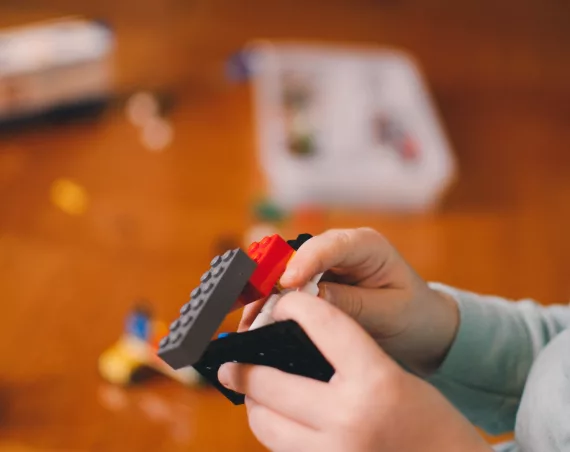
Rockets and satellites
Powered by RedCircle
Hello and welcome to Learn English Vocabulary. My name is Jack and I’m making this podcast for you to learn or revise English vocabulary. You can find a transcript of this podcast on LearnEnglishVocabulary.co.uk. There’s a page for this podcast with the transcript, an activity and a task for you to do in the comments section.
I have had a request from a listener called Khoa for a podcast about science and cosmography. This is an interesting request as I’ve never really come across the word cosmography before.
Cosmography
The cosmos means the world or perhaps the universe. The word cosmopolitan relates to the people of the world or citizens of the universe. The first man in space was Uri Gagarin – he was a cosmonaut which means space sailor – I love that. The suffix graphy means drawing, like in the word photography which means drawing with light. There are loads of words that have graph or graphy in them that are related to drawing or making pictures. After photography, the most common is probably pornography – I’m not going to describe that, but it’s to do with … pictures.
So the topic of cosmography is about drawing or mapping the cosmos or the universe and I think it will make a great topic for a podcast. In fact, it’s such a good topic that I am going to make two podcasts. You see, I have been reading some articles about the recent Atlas 5 launch which is the latest NASA rocket, carrying satellites into orbit and another article about the James Webb space telescope that is due to be launched into space in December this year. I’m going to summarise these articles in this and the next podcast and then focus on the important vocabulary related to cosmography.
The Atlas V launch
I’ll start with the Atlas V launch.
On Monday night, all over the world, stargazers were amazed to see a new light in the sky. At around eight oclock, the Atlas V rocket launched into orbit carrying NASA’s Landsat-9 satellite. About 2 hours after the launch, it performed a reversing manoeuvre and released two glowing clouds of vapour. Many people were unaware of the rocket launch and so were surprised to see the strange bright light in the sky. Some thought it was a comet or a strange aircraft. Many thought it was a ufo and that aliens were visiting earth.
The Landsat-9 satellite will orbit the Earth and take photos of the planet’s surface. The satellite will monitor cities, farming and crops, forests, deserts and glaciers to keep a record of how the Earth is changing. Landsat-9 is the latest in the Landsat series, replacing Landsat-8. These satellites have been recording the surface of our planet since 1972 and each new satellite has better technology and can show us more of the planet we live on.
Vocabulary
I now want to focus on some language. The most important vocabulary items related to cosmography from this story are: stargazer, planet, orbit, rocket, launch and satellite. However there were a couple of other items I will also talk about: a reversing manoeuvre, glowing clouds of vapour, ufo and aliens and monitor.
Stargazer
A stargazer spelled s – t – a – r – g – a – z – e – r is a person who looks at the sky at night. Normally this means an astronomer, but it can be anyone who likes looking at stars. The verb gaze: g – a – z – e means to look at something for a long time. People gaze into the eyes of the people they love and daydreamers gaze out of the window when they should be working.
Planet
The next word is planet p – l – a – n – e – t. A planet is a large lump of rock or metal, sometimes rocky and sometimes gas that moves in a circular orbit around a star. The sun is our star and has 8 planets, Mercury, Venus, Earth, Mars, Jupiter, Saturn, Uranus and Neptune.
Orbit
Orbit is a verb and a noun. It’s spelled o – r – b – i – t. To orbit means to travel in a circular path around an object. I spoke about this word before in a podcast about the Mars rover. It’s almost always used to talk about planets that orbit the sun and satellites that orbit the Earth. The noun describes the path that an object, say a satellite, takes as it travels around the larger object. We say that a satellite is in orbit when it is in a stable path. The force that keeps the planets in orbit is called gravity in English. If something is trapped in a circular path as it travels around an object with a strong gravitational pull then it is in orbit.
Rocket
A rocket spelled r – o – c – k – e – t is an object that burns fuel in a way that the gasses produce thrust which means they force or push the rocket very quickly up into the air. Normally rockets are large cylindrical objects that fly into space, but they are also weapons and can be used to fire explosives at an enemy. Rockets are also a type of firework that flies up into the air before exploding.
Launch
Launch can also be a noun or a verb. It’s more commonly used as a verb and is spelled l – a – u – n – c – h. It is a regular verb. I think the main meaning is to send a rocket into space. To launch a rocket means to fire the engines and fly the rocket from the ground up into the air. However, you can also use it to talk about boats. When a boat is put into the sea, it is launched. Interestingly, the word is used more commonly to mean to start or introduce a new project or programme. If a food company starts selling a new type of food, a new snack, then when they start selling and marketing the product, they will launch the product.
Satellite
The word satellite is spelled s – a – t – e – l – l – i – t – e and it means objects that are in orbit around a planet. We normally think of man-made satellites like the Landsat-9 and satellites that are used for GPS and communication, but there are natural satellites as well. The moon is a satellite. I think that natural satellites are normally called moons. The planet earth has one moon, but other planets have more.
A reversing manoeuvre
There are five more items that I want to look at. I said that two hours after launch, the rocket performed a reversing manoeuvre. To reverse means to drive backwards. In my car, I have 5 forwards gears and reverse. If I want to drive backwards, I have to put the car into reverse and then I can reverse. A manoeuvre is a series of movements that you do to perform a task. Normally manoeuvres require skill and attention. When you do a driving test in the UK, you have to perform three manoeuvres, a three point turn which is how you turn a car around when there’s not enough room to drive in a circle, you have to reverse park and you have to reverse around a corner. Manoeuvre is a hard word to spell – I can’t spell the word, but I have it written down here – it’s m – a – n – o – e – u – v – r – e. It’s the oeu in the middle that I always get wrong.
A glowing cloud of vapour
When the rocket performed a reversing manoeuvre, it released a cloud of vapour that glowed – it was a glowing cloud of vapour. Vapour is spelled v – a – p – o – u – r. Vapour is either gas or very small drops that hang in the air. Scientists say that steam is water in a gaseous state and that you can’t actually see steam. They say that the stuff you can see coming out of your kettle or if you are boiling water is water vapour. However, it’s very common to talk about clouds of steam or steam billowing from a steam train. To billow is a very advanced verb and it means to fill up or spread out in the air. Smoke billows from a burning biol;ding and the sails on boats billow in the wind.
A ufo
When people saw the glowing clouds of vapour and the rocket performing its reversing manoeuvre, many of them thought it was a ufo. A ufo is an abbreviation of the phrase unidentified flying object. This really means anything you see in the sky if you can’t tell what it is. Most things in the sky are birds or aeroplanes, but some things are more difficult to identify. There is a really famous video of a tic-tac ufo taken from a military jet.
Aliens
Lots of people think that ufos come and visit the Earth and that they are being driven by aliens. An alien a – l – i – e – n is a creature from another planet. I knew a man in Canterbury who said he was an alien and another who said he met aliens regularly. I’m not sure why they visit Canterbury. You can use the word as an adjective to describe something that’s different and from a different country or culture, but usually it means creatures from outer space. If there are any aliens listening to this podcast, please say hello in the comments section.
Monitor
The last word I want to talk about is monitor m – o – n – i – t – o – r. This can be a verb or a noun. I think most commonly, it’s a noun and it means the screens that you look at when you are using a desktop computer. But it can also mean to watch something carefully to see if there are any changes or to learn about it. Doctors monitor a patient’s symptoms, they regularly examine their patients to see if their symptoms have changed.
Vocabulary review
Now, I’m going to repeat the summary of the Atlas 5 launch articles so you can hear the language from this podcast in context again. Listen again for today’s vocabulary: stargazer, planet, orbit, rocket, launch, satellite, a reversing manoeuvre, glowing clouds of vapour, ufo, aliens and monitor.
Listen again: The Atlas V launch
On Monday night, all over the world, stargazers were amazed to see a new light in the sky. At around eight oclock, the Atlas V rocket launched into orbit carrying NASA’s Landsat-9 satellite. About 2 hours after the launch, it performed a reversing manoeuvre and released two glowing clouds of vapour. Many people were unaware of the rocket launch and so were surprised to see the strange bright light in the sky. Some thought it was a comet or a strange aircraft. Many thought it was a ufo and that aliens were visiting earth.
The Landsat-9 satellite will orbit the Earth and take photos of the planet’s surface. The satellite will monitor cities, farming and crops, forests, deserts and glaciers to keep a record of how the Earth is changing. Landsat-9 is the latest in the Landsat series, replacing Landsat-8. These satellites have been recording the surface of our planet since 1972 and each new satellite has better technology and can show us more of the planet we live on.
Conclusion
I will make another podcast about the launch of the James Webb space telescope that’s going to take over from the Hubble telescope. In that podcast, I will talk about some more advanced vocabulary related to cosmography including phrases like the observable universe, different types of galaxies, matter and radiation.
I hope you have enjoyed this podcast. I do love reading your comments so please leave me a comment on the site or a rating or a review on Apple podcasts. I love to hear from you and any comments or suggestions you have.
If there are any topics or songs or scenes from a film that you would like me to talk about or anything else you would like to hear, I would be delighted to make a podcast for you. So please visit LearnEnglishVocabulary.co.uk and say hello.
Thanks for listening.





10 Comments
Hung
Could you make a podcast about the song “ Dance Monkey” ,please?
Hung
Could you make a podcast about the song “ Solidad ” ,please?
Farid Sabir
Hello my name is Farid im a new listener of your podcast. Im from Indonesia and now im in preparation for IELTS test, I very glad can find your podcast because its help me to study more about english espicially on listening and writing. I hope my comment can make you more enthusiastic to make this podcast routinenly. Last but no least thank you very much to make this podcast. Yours sincerely, Farid Sabir
Al'
Hello Jack,
Thank you very much for all your precious podcasts. I discover it on Amazon and im listening to you every day on my road to and from work. With you i learn useful vocabulary and even new stuff from culture and films music composers to global warming. I appreciate it.
Marzena
I’m also a new listener and I really enjoy Your podcast and appreciate Your work! I think my level of English is about A2 and soon will be B1 beacause of “Learn English Vocabulary”:) Thanks a lot! Can’t wait for the next episod!
Mohammed
Great job, I have been listening to a lot of English podcast, this one and the way it works make you read and listening at the same time is really amazing appreciate your effort. Well done 👍
Mina
Hello, there was geat podcast, thank you
Timmy
hi. thank you for a very informative podcast. God bless you 💚
Arian
Jackkk , I’m worring about you
Where are you bro
Andrea
Jack!! your english podcasts refresh my mind and make me feel closer to any place in this beautiful world